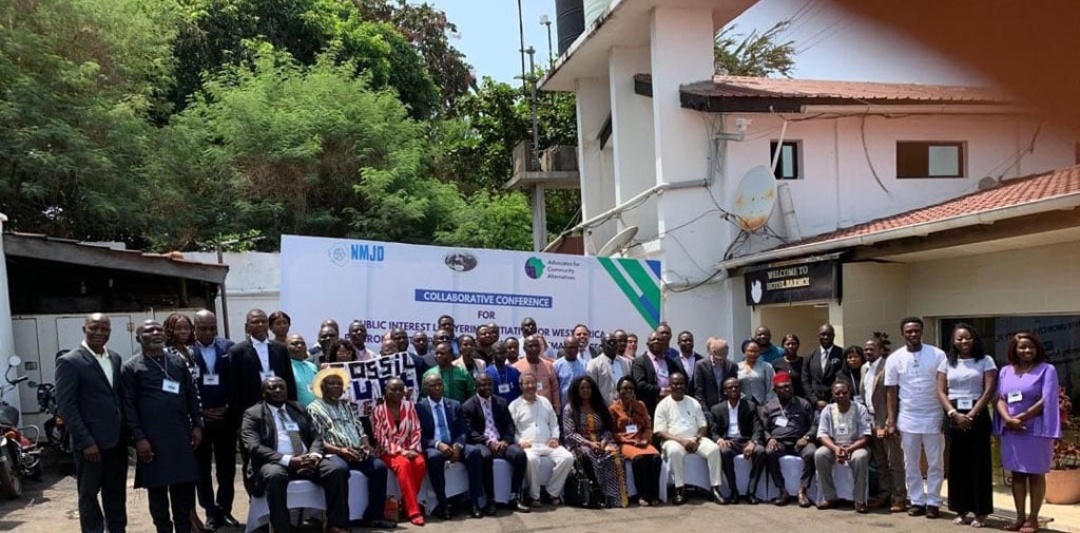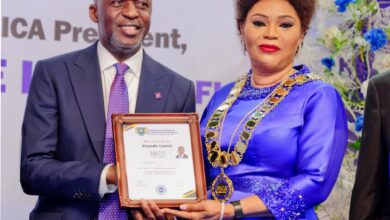
By Edu Abade
The African Climate Platform (ACP), Resilience40, Natural Justice (NJ) and Environmental Lawyers Collective for Africa (ELCA) with support of the Pan African Lawyers Union (PALU) have petitioned the African Court on Human and Peoples Rights requesting the court to issue an Advisory Opinion that delineates the human rights obligations of African states in the context of the climate crisis.
The request, a first of its kind on the climate crisis, marks a defining moment in the pursuit of climate and environmental justice as it is anchored primarily on the African Charter on Human and Peoples Rights, the preeminent continental human rights treaty to which all, but one African state are parties.
In a communiqué issued after a virtual meeting, the groups enjoined the Court to delineate the scope of obligations of state in light of several provisions of the African Charter including the right to a sustainable environment (Article 24), the right to life (Article 4), the right to health (Article 16) and the right to development (Article 22).
Dzimbabwe Chimbga, Lead Drafter, Alfred Brownell, Lead Campaigner, ACP; Nomasango Masiye-Moyo, Lead Coordinator ELC; June Cynthia Okelo, Economic Governance Officer, PALU; Paul Mulwindwa of CIVICUS; Ahmad Abdallah; Dorcas Sikujua Faida and Inna Maria Shikongo; Courage Nsirimovu; Olivier Ndoole of ACEDH DRC; Peter Quaqua, Head of Secretariat; Lucien Limacher, Head of Programmes, NJ and Michael Kakande, Chairperson, R40 endorsed the communiqué.
“As we file this application, we note that Africa continues to bear the brunt of climate change impacts despite contributing the least to global greenhouse gas emissions, accounting for less than 4 percent of the world’s total emissions.
“Africans continue to disproportionately face severe consequences from Climate change-including prolonged droughts, devastating floods, and rising temperatures-that threaten food security, water access, and livelihoods all over the continent. This request is our contribution to push back on these injustices and the disproportionate impact African citizenry continues to suffer as a result of climate change.
“This request is therefore not just a legal act- it is a collective voice raised by communities, youth, civil society organizations, legal practitioners, and movements across Africa. It reflects the urgent and lived realities of climate impacts on our people. We come seeking legal clarity, but also moral guidance on how African states must act to uphold the various rights impacted by climate change.
“The African Court stands as a beacon of hope-a protector of rights, a guardian of justice, and now, a critical player in ensuring climate accountability. This Court, alongside other bodies of the African Union, carries the weight of a continent’s aspirations for a dignified life for all Africans,” they stated.
The groups argued that across the world, states and communities are turning to courts for climate justice. As the African Union’s support for the International Court of Justice advisory opinion shows, Africa’s voice is growing louder on the global stage, adding: “We are asserting not just the harm we have endured, but the rights we have-the right to be heard, the right to be protected, and the right to chart our own sustainable future.
“As President of the African Development Bank (AfDB), Akinwumi Adesina so powerfully stated: “Africa must not be treated as a victim, but as a key part of the global climate solution.” We have the innovation, the ambition and the moral clarity to lead the world toward climate resilience. And today, by bringing this petition, we reaffirm that Africa’s leadership must also be recognized in law.
“The African Union’s (AU) Agenda 2063 envisions The Africa We Want, a prosperous, peaceful Africa led by its own citizens. Climate justice is central to that vision. And so today, we do not merely file legal documents; we issue a moral call. We call upon the African Court to stand with the vulnerable, to uphold the rights enshrined in the African Charter, and to inspire bold action from states and institutions alike.”
Speaking, Brownell said the work ahead will not be easy, adding: “It demands relentless commitment, collaboration and innovation-as the African Commission reminds us. It demands that we center the needs of those most affected: the rural farmer who cannot predict his seasons, the coastal fisher whose home is disappearing beneath the sea, the child who deserves to grow up breathing clean air and drinking safe water.”
He charged members of the African Court, to ensure a transformative chapter in African Climate Jurisprudence-one where the rights enshrined in our Charter resonate profoundly with the urgent realities of this crisis.
“The eyes of the world are upon you, and we trust that you will rise to this occasion with the wisdom, courage, and clarity it demands from you.
To my dedicated colleagues at the Pan-African Lawyers Union (PALU), your relentless work has set the groundwork for an incredible movement that transcends the boundaries of a single petition.
“You have been instrumental in shifting African civil society from the peripheries of legal influence to a prominent position at its core. May this effort serve as the first of many steps in reclaiming our legal voice across courts, nations and generations to come.
“This is only the beginning. As we await the Court’s decision, we pledge to amplify this noble cause in every courtroom, classroom, parliament and community across our beloved continent,” he added.










4m2o3j